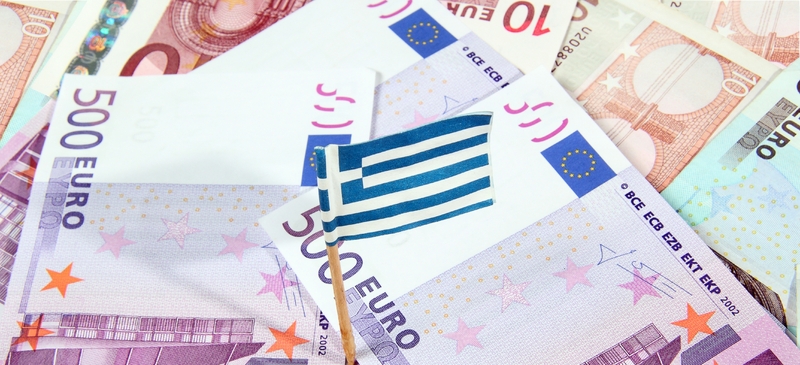
A smaller eurozone would be stronger
A single European currency has the merit of encouraging trade and investment across frontiers, and thus growth. But countries with inflexible, badly-run economies should never have been allowed to join the euro. The sooner the eurozone shrinks, the sooner it will stabilise.
A country such as Greece with large budget and current account deficits cannot stay in the euro unless two conditions are met. First, it needs a political consensus to support many years of painful austerity. But a lot of Greek politicians oppose further cuts. Second, Germany and the 'core' members of the eurozone must be willing to sign up to one expensive bail-out after another, indefinitely. That commitment is questionable. The prime minister of one eurozone country told me recently that it would not contribute to any more bail-outs and that Greece should quit the euro.
The EU/IMF medicine prescribed to Greece, Ireland and Portugal – severe public spending cuts and structural reform – is necessary but not sufficient. Nothing has been done to promote growth in these countries. The austerity has in fact led to negative growth, increasing the debt burden to unsustainable levels. Some sort of default looks inevitable in all three.
EU leaders should recapitalise their banks quickly, so that they can cope with defaults. They also need to devise a modern Marshall Plan to boost private and public investment, and thus growth, in the 'peripheral' countries. They should give more moral and political support, holding summits in these countries and explaining to their people why austerity is necessary. Only the faceless bureaucrats of the Commission, European Central Bank (ECB) and IMF have been regular visitors. Since last year's Greek austerity package, a German official told me last week, “we have left Greece largely to its own devices”.
There are two reasons for pessimism about the eurozone. One is the constant bickering and dilatoriness among Europe's leaders. The euro is like a patient on a sick-bed, surrounded by doctors who do not agree on the nature of the malady or the medicine required to cure it. Leaders have failed to convince markets that they know what they are doing.
The second is the growth of eurosceptic sentiment across the EU. In 'peripheral' countries there is increasing opposition to further spending cuts, given the meagre prospects of a return to growth. In core countries such as Finland, Germany and the Netherlands, there is growing hostility to further bail-outs. So even if the doctors find the perfect remedy and agree on the treatment, parliaments in northern and southern Europe may spurn it.
If Greece restructured its debt, writing off say 70 per cent of the value, its problems would not be solved; it would still need to borrow abroad for its budget and current account deficits. And if it left the euro it would still have to borrow. Some say that quitting would be mad because Greece would then cut itself off from credit markets. But Greece is already cut off, and if it tried to leave the euro it would seek its partners' help in arranging an orderly exit. There would be talks on aid and capital controls. Remember, growing numbers of North Europeans want Greece to go.
Exiting would damage economic activity in Greece, in the short term. Spending cuts and structural reform would still be necessary. But there would be light at the end of the tunnel: a big devaluation would make Greek companies competitive and economic growth possible. To some Greek leaders, this is an increasingly tempting option.
But would Greece's departure lead to the euro unravelling? The financial markets would smell blood. Portugal, which shares many of Greece's weaknesses but has a more stable political system, could only avoid contagion by adopting bold reforms swiftly. The EU would have to give it huge economic and political support. Ireland, with a flexible economy and successful export industries, should be able to stay in the euro – so long as it scraps the foolish guarantee given to those who bought bank bonds.
Spain has made a start on structural reform but needs to speed up. The markets have not paid much attention to Italy, because of its modest annual budget deficit. But government debt is 120 per cent of GDP, only Haiti and Zimbabwe grew more slowly in the past decade, and the political class seems incapable of enacting reforms that would boost productivity and growth. The other eurozone countries should be able to thrive within it.
Much of the current mess stems from poor leadership. The Commission has stayed on the sidelines, pushed there by France and Germany. The ECB has retained its integrity and independence but its fixation on avoiding any debt restructuring – for fear of contagion – may make the restructuring more painful when it comes. France has allowed Germany to lead. But as one Berlin official admitted to me last week, much of Germany's line on the euro has been driven by domestic politics. “We are learning as we go along and we have not understood markets well,” he said. Such candour is encouraging and suggests that a somewhat smaller eurozone has a future.
